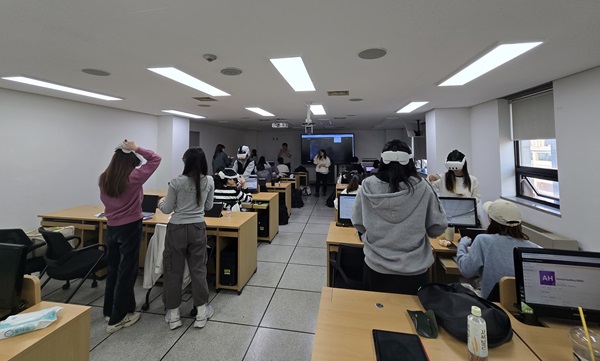“SINK or swim? Yes, I definitely think that should be the motto for my business!”
Betina Skovbro, founder and inspirational driving force behind Cardiff-based Danish artisan bakery, Brød, is explaining her philosophy behind training a new generation of Welsh bakers by effectively throwing them in at the deep end.
A passionate advocate of apprenticeship schemes, Betina – a former professional photographer who launched the business in 2015 after spotting a gap in the market for freshly-baked Danish breads, pastries and cakes – fervently believes other businesses should follow suit.
“I just don’t understand why more don’t offer such schemes – or at least decide to give them a try,” she says. “Yes, of course it’s very hard work at the beginning when you get someone who is completely green.
“Then you potentially see a full-time member of staff temporarily become part-time as they have to devote a certain amount of time to training the new apprentice, yet – take it from me – after a couple of months the rewards can be brilliant!
“I have five members of staff who are bakers and all but one has been my apprentices, so effectively they learnt ‘on the job’ which I believe is better than attending college or university – this way they learn about real life as well as running a business!” Welsh businesses such as Brød are not just finding apprenticeship schemes are an invaluable way to recruit, but also go a long way to helping staff retention and – in addition to building skills within a business – can also assist in strengthening the resilience of the business itself.

A company with such a scheme in place is obviously less prone to suffering staff shortages while at the same time reaping cost savings. And, from an apprentice’s point of view, if you throw in the twin attractions of career progression and employee satisfaction then it is a no-brainer.
Donna Heath, Business Support Manager at Cambrian Training, one of the leading work-based apprenticeship providers in Wales, says,
“We are in the enviable position of having fully-funded apprenticeship programmes available to all, with the added bonus of no restrictions on eligibility for most food, drink and hospitality apprenticeships.
“When recruiting and advertising for new employees, employers who offer apprenticeships are at a distinct advantage as they can promote their apprenticeship offer to show how they are willing to invest time in staff development and that there are career progression opportunities within the business,” she explains.
“Employers who offer apprenticeships to their employees see a benefit in staff who are more loyal, more motivated and who feel valued.
“Apprenticeships can also have a positive impact on the customer. According to our most recent survey 96 per cent of employers who responded said that the apprenticeship training improves the quality of our products and/or services we provide to our customers.”
The Celtic Collection, a chain of luxury business and leisure properties, are among those who work closely with Cambrian Training to establish what they term ‘career pathways’.
“We have apprenticeship options for everyone who joins The Celtic Collection whether on a full-time or part-time basis,” says Learning and Development Manager John Eagle.
“Building skills by nurturing our own team has always been the name of the game for us. Because of the turbulent times we have experienced, the sector – like so many others – is not as stable as we would like.
“Working alongside Cambrian Training we hold regular work inductions where career pathways are explored and any new employee can sign up on day one. We have over one hundred apprentices on the scheme at the moment and, being something of a flagship for the Welsh hospitality industry, take our responsibilities very seriously.”
Kepak, the Irish-based meat company who last year announced over a hundred new jobs at their Merthyr site, recently reviewed their training strategy, partly due to the restrictions being placed on foreign recruitment post-Brexit.
“We appointed dedicated butchery skills trainers and, through a link-up with Cambrian Training, structured our training in line with apprenticeship frameworks,” explains general manager Chris Jones.
“This has proved extremely effective and allowed us to build a bank of skills that supports our ambition to grow our business through increased volumes. We believe that this growth and greater local recruitment help us to contribute more to the Welsh economy.
“As well as filling our training matrices, we are also able to off er new recruits the opportunity to earn while they learn and provide a clear, supported career path for all operational staff through the development of new skills.
“We have subsequently broadened the range of apprenticeships offered, all of which has led to a significant increase in staff morale and a positive work environment.”
Donna Heath explains that Cambrian Training can support employers wishing to recruit an apprentice by advertising on the apprenticeship vacancy service website along with the Cambrian Training website.
“We will also help employers to identify any incentives that may be on off er – for example there is currently an employer incentive available where they can receive up to £2,000 for recruiting disabled apprentices,” she says.
“Alternatively, employers can off er apprenticeships to existing staff as part of their development programmes. Apprenticeships are not just for young people who are new to the workforce.
Not surprisingly Betina Skovbro wholeheartedly approves.
“I hear this reluctance to take on apprentices from so many trades, including builders, roofers and plumbers,” she says.
“But by failing to engage in these schemes they are not bringing along the next generation.
“Cambrian Training come in to check that what we are teaching our apprentices is relevant and we’re not just using them as cheap labour. By starting apprentices off and spending time with them we are obviously doing them a favour – but that can ultimately be paid back tenfold.
“Nothing beats actual work experience. For example, dough is a living product that feels different in winter than it does in summer and only by touching it can you learn what is right and what is wrong. Our apprentices wouldn’t learn that in a classroom!
“They also learn to be part of a team, experience the pressure when the chips are down and times when everyone needs to support each other. When you work as part of a company there’s so much more at stake.”
Taking on an apprentice should be viewed as a long-term investment. And, from the apprentice’s point of view, such a role offers an acceptable alternative to formal education – the chance to learn directly from ‘the coal face’ while at the same time embracing the core life values of teamwork, discipline and not forgetting an esprit de corps!








